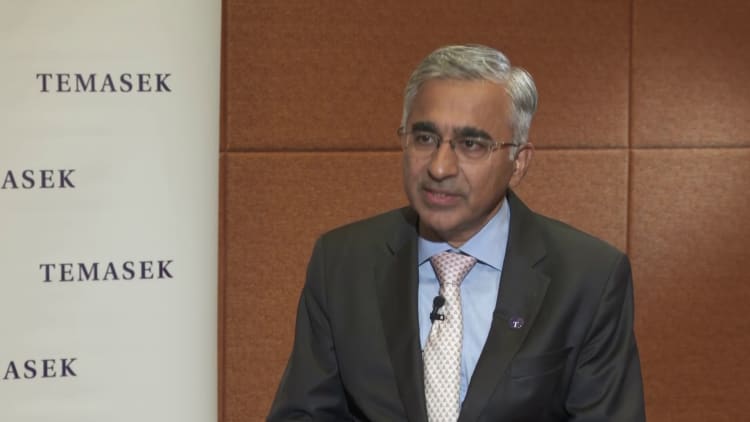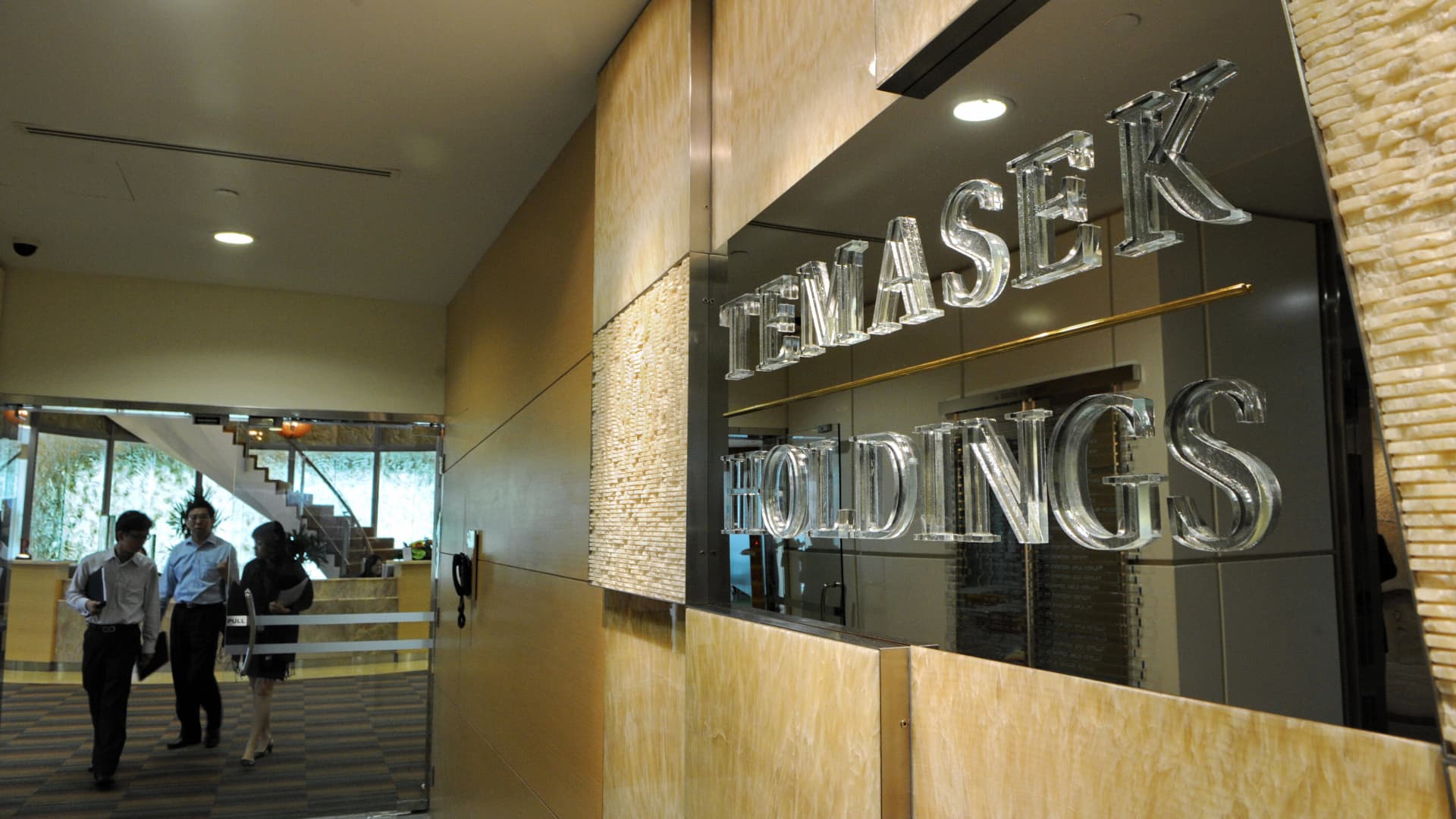
SINGAPORE — Singapore’s state investment company Temasek recorded in 2023 its worst returns in seven years, weighed by a challenging macroeconomic and geopolitical environment.
Temasek posted a 5.07% decline in its one-year total shareholder return in Singapore dollars in the financial year that ended March 31, according to a statement released Tuesday. This was Temasek’s worst annual shareholder return since 2016 and just its fifth one-year negative return since 2003.
“We have a predominantly equities portfolio, so we can’t be immune to movements in the market,” Temasek’s Chief Investment Officer Rohit Sipahimalani told CNBC.
Temasek’s net portfolio value came in at 382 billion Singapore dollars ($287 billion), compared to S$403 billion a year ago. It also recorded a net $6 billion net group loss, which was its first in at least a decade.
Still, Temasek’s decline in annual shareholder return in 2022/23 compares relatively favorably with global stock market returns.
Temasek Holdings posted a 5.07% decline in its one-year total shareholder return in Singapore dollars in the financial year that ended March 31, 2023, according to a statement released Tuesday. Net portfolio value came in at S$382 billion, compared to S$403 billion a year ago. This was just its fifth one-year total shareholder negative return since 2003.
Roslan Rahman | Afp | Getty Images
The S&P 500 and MSCI Asia ex-Japan benchmarks each plunged nearly 20% in 2022, roiled by sticky inflation despite multiple rate hikes by central banks. Intensifying geopolitical tensions such as U.S.-China tensions and the Russia-Ukraine war also added to the unprecedented mix of complexities.
“Going forward … it depends on how the market does. We would hope to be more resilient than the market,” he told CNBC’s Sri Jegarajah. “If you have a recovery in the market, you know, we will do well. And if not, then hopefully we still are building a portfolio that’s not from a one-year perspective, but from a five- to 10-year perspective.”
The Singapore state investor is invested in both public and private markets. Unlisted assets comprised 53% of its portfolio as at March 31— generating higher returns in listed assets. Marking its unlisted portfolio to market would provide S$18 billion of value uplift, it said.
Its three-year total shareholder return stood at 8%, while its 10-year return was at 6% and 20-year return at 9%.
Portfolio adjustments
The confluence of multiple global events in the past year has raised the cost of capital and weighed on capital flows, the Singapore state investor said.
“It also had an impact on the pace of energy transition, in the face of greater demand for energy security and resilience,” Temasek added.
Temasek said its global direct investments, particularly in the technology, health care and payments spaces, saw “a reversal of gains” in the 12 months ending March 31, as valuations de-rated in the higher interest rate environment.
Temasek said it consequently slowed down its investment pace in the past year, and adopted a cautious approach as liquidity tightened. It invested $23 billion, while divesting $20 billion, resulting in a net investment of $3 billion.

Still, Temasek said it made new investments in payments platform, Stripe, as well as IT security provider Kaseya. That investment in turn enabled its acquisition of Datto, a provider of security and cloud-based software solutions.
Temasek said it increased its stake in Mastronardi, a Canada-based company that cultivates and distributes fresh produce grown in greenhouses.
The Singapore’s state investor said it trimmed its portfolio exposure to financial services to 21% in 2022/23 from 23% the year before, It also increased its exposure to transportation and industrials to 23% from 22%. These two sectors are the largest in its investment portfolio.
Early stage investments are capped at 6% of its portfolio, Temasek said.
Forward guidance
In November, Temasek wrote down its $275 million investment in bankrupt cryptocurrency exchange FTX.
It subsequently cut compensation in May for the team that recommended its investment in the now-bankrupt FTX cryptocurrency exchange, as well as for its senior management team.
“I would say we’ve never been looking to invest in cryptocurrencies,” Sipahimalani said.
“There’s a lot of regulatory uncertainty in this environment,” he added, saying it would be “very difficult” for Temasek to make another investment in cryptocurrency exchanges.
Sipahimalani said the state investor is seeking greater portfolio resilience against the market volatility brought forth by current global complexities.
India and Southeast Asia are geographical areas that Temasek is looking to increase investments, he said.
“India is about 5% of our portfolio today. We are looking to increase that and have been stepping up our investments in the last couple of years,” Sipahimalani said.
“Southeast Asia is even smaller, we do want to increase that relatively compared to India. The size of the public markets is not as big. So it’s tougher to find opportunities of scale to sort of do that,” he added. “But we are actively working on that.”
He pointed to Vietnam, which he says stands to disproportionately benefit from some of the regionalization of supply chains.
Sipahimalani also said that any recession would represent investment opportunities for Temasek.
“We do think that you probably need a recession, to get inflation down to levels that were acceptable,” the CIO said.
“Actually, I do think that any recession will be mild because of strong balance sheets for the consumer and the corporate level. And that, I think, would be an investment opportunity for us if you see those [market] corrections.”

